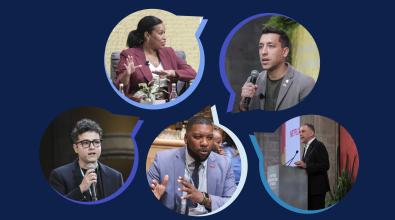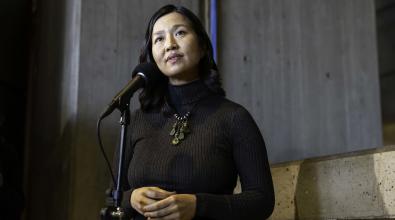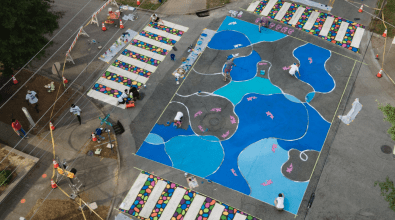Athens wins prestigious innovation prize

Being named Europe’s Capital of Innovation is a remarkable achievement for any city. For Athens, Greece, a city still wrestling with the impacts of an economic collapse and refugee crisis, it’s doubly so.
On Tuesday, Athens became the fourth-ever city to win the title, which is awarded every year by the executive arm of the European Union. The honor — and the €1 million prize — recognize the strides Athens city leaders have made in finding new and effective ways of addressing poverty, blight, and other tough problems despite big budget cuts and a shrinking staff.
“Athens stands out as an example that a city facing many challenges can achieve great things,” said Carlos Moedas, the European Commissioner for Research, Science and Innovation. “Through innovation, Athens has found new purpose to turn around the economic and social crisis. It is proof that it’s not the difficulties but how you raise yourself above them that matters.”
One hallmark of Athens’ approach is to put citizens at the center of innovation. When Mayor Giorgos Kaminis came into office in 2011, city government was broke and the economic crisis was deepening. At the same time, however, city residents were spontaneously banding together to clean up trash, provide free medical care, feed the hungry, and more. Kaminis helped strengthen those grassroots initiatives by identifying who was doing what and then connecting them to one another.
The result was synAthina, an online platform that won a €1 million prize in the 2014 Bloomberg Philanthropies Mayors Challenge. The platform has registered nearly 400 groups who have carried out more than 3,000 activities, from graffiti removal to organizing gardening workshops. It’s also created a continuously evolving map of Athens’ growing civil society, giving donors, issue experts, and others a path to support promising initiatives.
One recent success was the restoration of the derelict Kypseli Market. Not only was the city able to consult with the community through synAthina to decide on a new purpose for the structure, but it also found partners to help run it. The market building reopened this month as a new collective space for nonprofits who aim to foster social and cultural innovation in the city.
In other words, synAthina is more than just a website. It’s a space where Athenians are opening a civic dialogue and rebuilding trust. “SynAthina has helped us create the spirit of openness in a bottom-up approach that’s evident in other programs that followed,” Kaminis said. “The synAthina model is now very popular in many, many cities around Europe.”
[Read: An interview with the Athens leader behind synAthina, Amalia Zepou]
Another characteristic of the Athens approach is to forge cross-sector partnerships between the municipality and businesses, universities, foundations, and others. Working with Bloomberg Associates, a pro bono city consulting service offered by Bloomberg Philanthropies, Athens formed an independent nonprofit entity known as the Athens Partnership. The group has raised €12 million to catalyze innovative projects that would be difficult for the municipality to pull off on its own.
For example, an initiative called the Athens Digital Lab is working with six startup companies to develop digital applications to help the municipality serve residents better. Another effort, Open Schools, turns school buildings into community centers during evenings, holidays, and weekends. More than 27,000 residents have participated in free educational and recreational activities offered through the program.
[Read: Why Athens is doing late-night counts of homeless people]
“Government cannot succeed alone,” Kaminis said. “We need to work with the community, and public-private partnerships are the best way to understand the real needs and build consensus toward sustainable programs.”
The European Capital of Innovation prize is only the latest recognition of Athens’ efforts from the European Union. The city recently won a €5 million prize through the E.U.’s Urban Innovative Actions program for a project aimed at settling refugees and migrants in formerly abandoned properties. Beneficiaries of the program will be expected to perform volunteer activities, as well as attend language and job-skills trainings.


